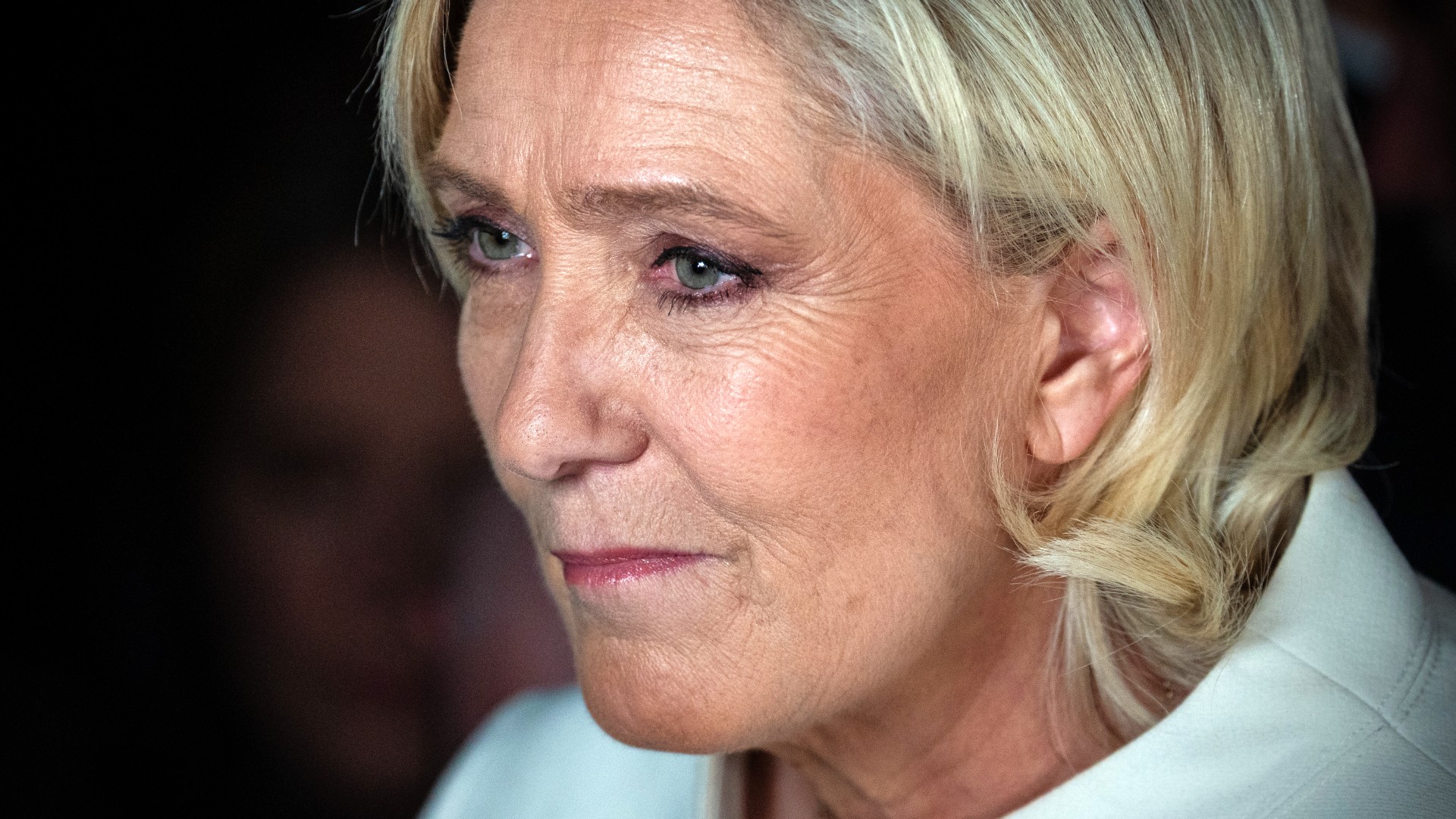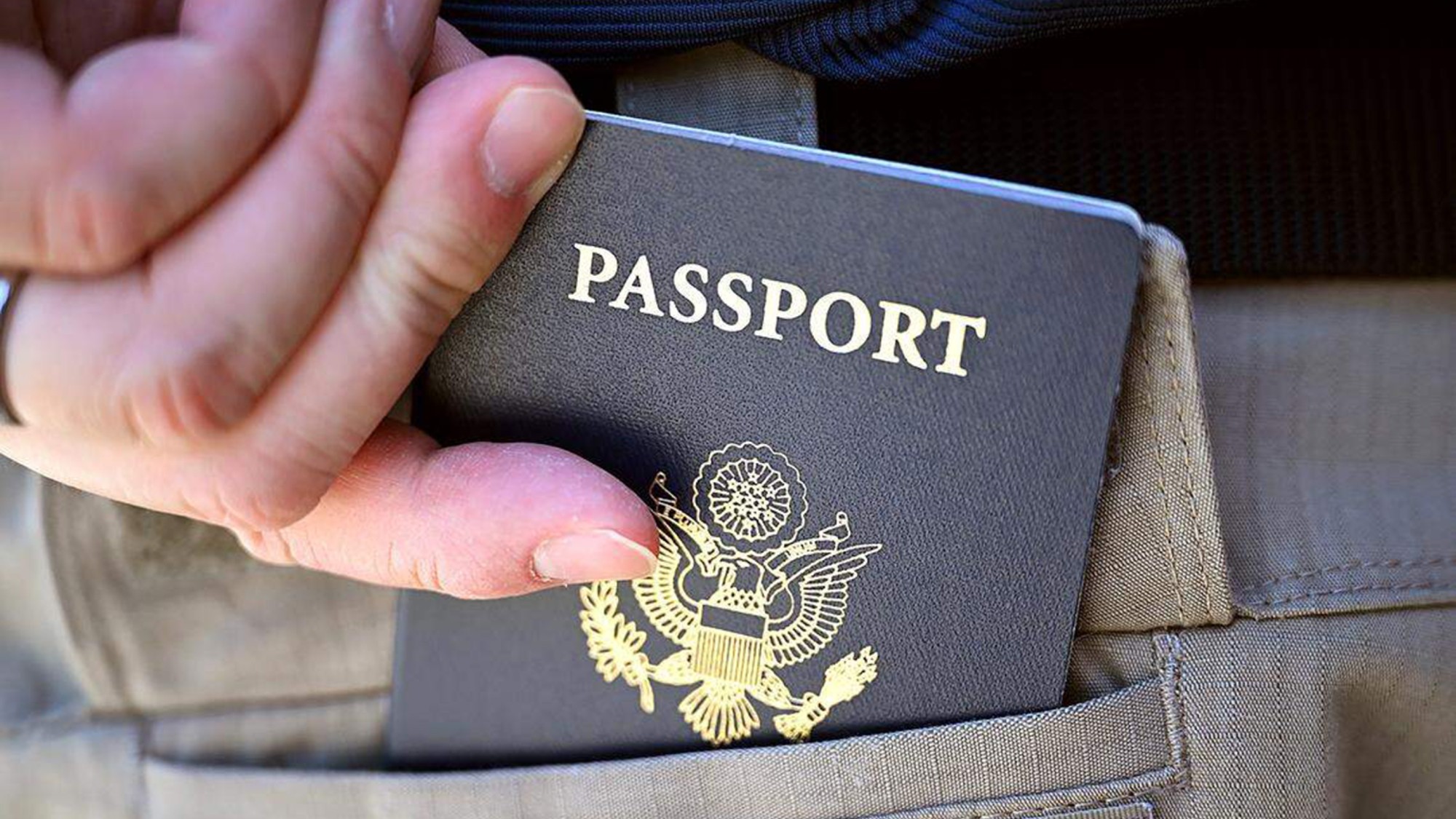Why is Marine Le Pen on trial?
French politician stands to lose more than her freedom if found guilty of embezzling EU funds

A free daily email with the biggest news stories of the day – and the best features from TheWeek.com
You are now subscribed
Your newsletter sign-up was successful
Marine Le Pen, the former leader of France's far-right National Rally (RN), has gone on trial in Paris for allegedly embezzling money from the European Parliament.
She is charged alongside 26 other figures in the party, including several sitting MEPs and her 96-year-old father and party founder, Jean-Marie Le Pen, in what Le Monde called a "decisive trial in more ways than one".
Le Pen has repeatedly denied any wrongdoing. RN spokesperson Laurent Jacobelli said: "We are going to prove that there is no system to embezzle money from the EU."
The Week
Escape your echo chamber. Get the facts behind the news, plus analysis from multiple perspectives.

Sign up for The Week's Free Newsletters
From our morning news briefing to a weekly Good News Newsletter, get the best of The Week delivered directly to your inbox.
From our morning news briefing to a weekly Good News Newsletter, get the best of The Week delivered directly to your inbox.
What is Le Pen accused of?
It is claimed that between 2004 and 2016, the party – then known as the National Front, prior to a 2018 rebrand – operated a fake jobs scheme, using EU funds to hire parliamentary assistants and using them to work exclusively for the party, the majority of them holding "key positions", reported Politico. It's alleged that many of the assistants were unable to describe their daily work and some had never met their supposed boss or even entered the European Parliament building. Le Monde added that the parliament has estimated around €7 million was misused.
Le Pen, who was the party's president from 2011 to 2021 and an MEP between 2009 and 2017, is accused of employing a parliamentary assistant who actually worked as a bodyguard for her and her father. A secretary, chief of staff and a graphic designer are also said to have been hired under similar false pretences.
In her defence, Le Pen said parliamentary assistants "do not work for the parliament" but were rather "political assistants to elected officials". She added that she assigned tasks according to the person's skills. "Some wrote speeches for me and some handled logistics and coordination," she said.
What will happen if she's found guilty?
The trial is expected to last around two months, and Le Pen and her co-defendants could be facing a maximum sentence of 10 years behind bars if found guilty, as well as a fine of up to €1 million each.
A free daily email with the biggest news stories of the day – and the best features from TheWeek.com
The party has already paid back €1 million to the European Parliament, of which €330,000 was directly linked to Le Pen's alleged misuse of funds, the AP reported. Lawyers insist this is not an admission of guilt.
How would a guilty verdict affect her political career?
"The stakes are enormous for the three-time presidential candidate," said Politico, noting that as well as the jail term and fines, Le Pen could face a possible five-year ban on running for public office. That would make her ineligible to stand in the 2027 presidential election, and she has already announced her intention to do so.
Le Pen ran for the presidency in 2012, 2017 and 2022. In 2022 she won 23.2% of the vote in the first round and 41.5% in the run-off with Emmanuel Macron. In July's parliamentary elections, RN took the largest vote share in the first round of voting, but was squeezed out by a left-wing alliance in the final round.
In September, the French website Challenges reported that if a presidential election was called now, Le Pen would be "unshakeable", likely to gain up to 40% of the vote in the first round.
Elizabeth Carr-Ellis is a freelance journalist and was previously the UK website's Production Editor. She has also held senior roles at The Scotsman, Sunday Herald and Hello!. As well as her writing, she is the creator and co-founder of the Pausitivity #KnowYourMenopause campaign and has appeared on national and international media discussing women's healthcare.
-
 How the FCC’s ‘equal time’ rule works
How the FCC’s ‘equal time’ rule worksIn the Spotlight The law is at the heart of the Colbert-CBS conflict
-
 What is the endgame in the DHS shutdown?
What is the endgame in the DHS shutdown?Today’s Big Question Democrats want to rein in ICE’s immigration crackdown
-
 ‘Poor time management isn’t just an inconvenience’
‘Poor time management isn’t just an inconvenience’Instant Opinion Opinion, comment and editorials of the day
-
 How ‘Manchesterism’ could change the UK
How ‘Manchesterism’ could change the UKThe Explainer The idea involves shifting a centralized government to more local powers
-
 Le Pen back in the dock: the trial that’s shaking France
Le Pen back in the dock: the trial that’s shaking FranceIn the Spotlight Appealing her four-year conviction for embezzlement, the Rassemblement National leader faces an uncertain political future, whatever the result
-
 ‘Dark woke’: what it means and how it might help Democrats
‘Dark woke’: what it means and how it might help DemocratsThe Explainer Some Democrats are embracing crasser rhetoric, respectability be damned
-
 San Francisco tackles affordability problems with free child care
San Francisco tackles affordability problems with free child careThe Explainer The free child care will be offered to thousands of families in the city
-
 The Mint’s 250th anniversary coins face a whitewashing controversy
The Mint’s 250th anniversary coins face a whitewashing controversyThe Explainer The designs omitted several notable moments for civil rights and women’s rights
-
 US citizens are carrying passports amid ICE fears
US citizens are carrying passports amid ICE fearsThe Explainer ‘You do what you have to do to avoid problems,’ one person told The Guardian
-
 Inside Minnesota’s extensive fraud schemes
Inside Minnesota’s extensive fraud schemesThe Explainer The fraud allegedly goes back to the Covid-19 pandemic
-
 Trump wants to build out AI with a new ‘Tech Force’
Trump wants to build out AI with a new ‘Tech Force’The Explainer The administration is looking to add roughly 1,000 jobs